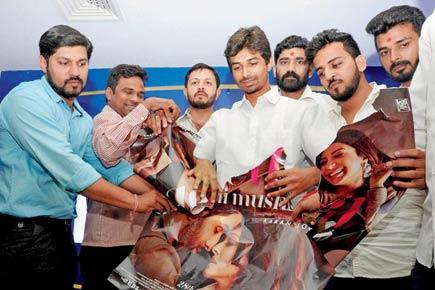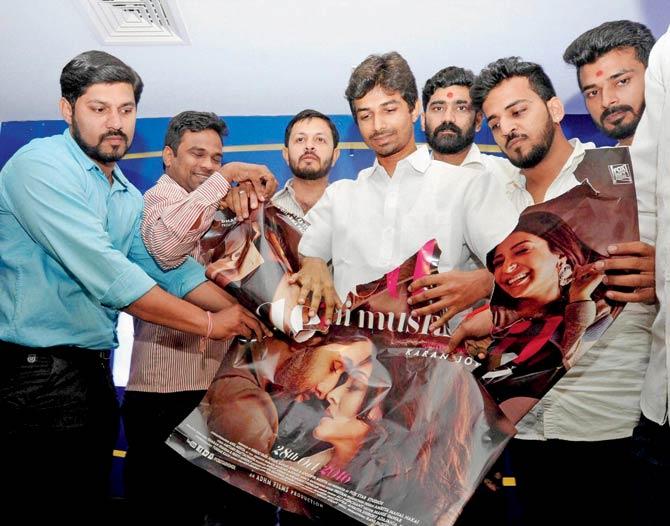In our pursuit of stability, we chase the wrong subplots and arrive at the realisation that we’ve become supporting casts in our own stories


BJP Yuva Morcha activists in Thane protest against the release of Ae Dil Hai Mushkil in multiplexes, as it features Pakistani actor Fawad Khan. Pic/PTI

ADVERTISEMENT
The question is one of priorities. So many of us have been taught to compromise on our ethics, our visions for ourselves, and our ambitions for the sake of the illusion of security. In our pursuit of stability, we chase the wrong subplots, finally arriving at the core of the matter only to realise we have become supporting casts in our own narratives, having long ago given up our role as lead protagonists.
If my life were a movie, the soundtrack accompanying the writing of this column would have been Sam Cooke’s 1965 song, A Change is Gonna Come. I’ve made my peace with what that shift will imply — a return to relative poverty, a revisiting of financial insecurity, none of which is new to me.
I’m now so eager to unchain myself from obligations that have gotten solidified out of a sense of helplessness, I’m desirous of taking back control, resuming, once again, the life I had envisioned for myself. The first step, I’ve learned is to teach yourself to say no to everything on the table that is extraneous, erroneous.
As 2016 steadily dissolves, giving way to a new beginning, it will inadvertently mark a year since I became a published author. No one warned me how little life changes once that transition is made. My bank account hasn’t bloated up, I am not the toast of any town, I am not courted by lit-fest directors, and I will have won no awards. No one warns you either that none of this matters, that these are all superficial accolades. This fact is revealed to you almost as a surprise when you suddenly learn you do not care, that none of these aspirations formed the incentive behind your literary enterprise. The only logical thing to do after you finish the first book is to move on to the next, despite knowing you will never have the same audience as a Chetan Bhagat, even though you are exceedingly better and have more insightful things to say.
The other day when I was reading Clarice Lispector’s The Hour of the Star, one of many books that I received in a box all the way from New York, thanks to the generosity of a writer friend, Jeffery Allen, who was my co-panelist at a session at the Byron Bay Writer’s Festival in August, I instinctively penciled under this line by the male narrator who is speaking of his female protagonist; “For the question ‘Who am I?’ creates a need. And how does one satisfy that need? To probe oneself is to recognise that one is incomplete.” The unnamed narrator is trying to establish the root of his character’s voluntary lack of self-awareness, and it seems like reason enough: the fear of discovering one’s incompleteness. As he probes himself, he says, “Forgive me if I add something more about myself since my identity is not very clear, and when I write I am surprised to find that I possess a destiny.”
I can feel in my gut that it is time to shape my destiny; that I cannot leave it to the world to define my contributions should my life cease prematurely, without warning. I must self-direct the trajectory of my hopes and dreams and no longer be subservient or play second fiddle to other people’s ambitions. Like every artistically inclined person, I too seek immortality, not through the form of progeny, but through the presumed longevity of my enduring scriptures. Milan Kundera writes in Immortality — “Living, there is no happiness in that. Living: carrying one’s painful self through the world. But being, being is happiness. Being. Becoming a fountain, a fountain on which the universe falls like warm rain.” That is what I want, not to live, but to be.
Deliberating on the life and times of Everywoman, Rosalyn D’Mello is a reputed art critic and the author of A Handbook For My Lover. She tweets @RosaParx. Send your feedback to mailbag@mid-day.com
 Subscribe today by clicking the link and stay updated with the latest news!" Click here!
Subscribe today by clicking the link and stay updated with the latest news!" Click here!







